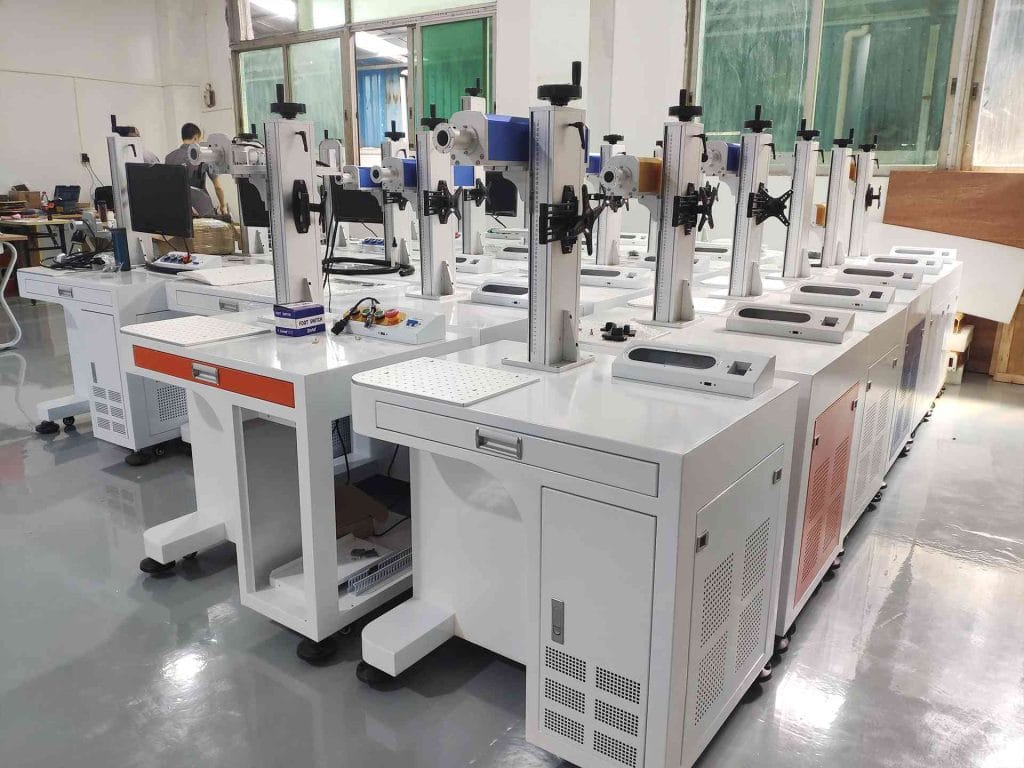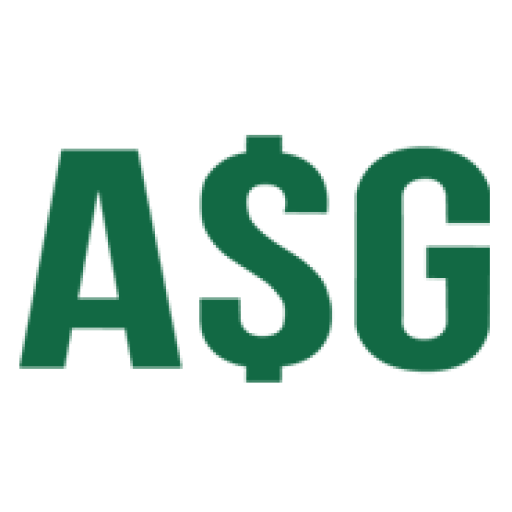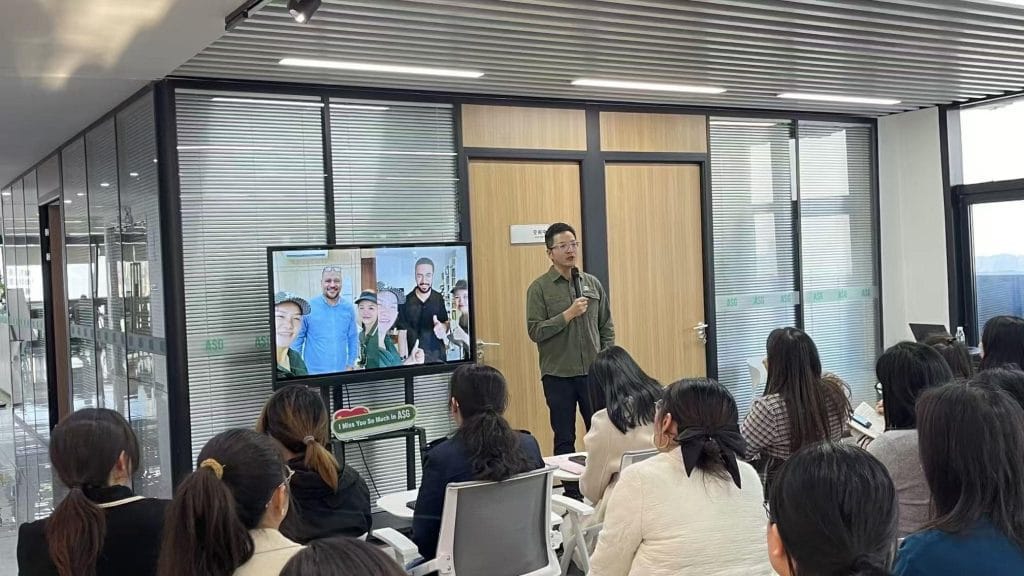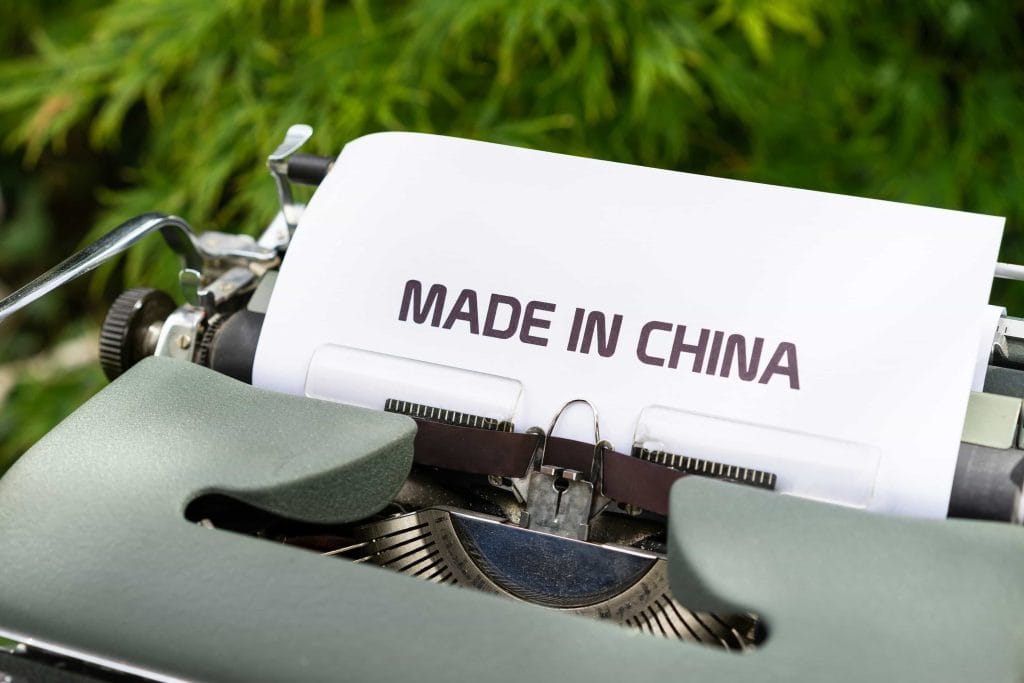Beginnen Sie Ihre Beschaffungsreise in China, aber fühlen sich von der Wahl zwischen Herstellern und Handelsunternehmen überfordert? Keine Sorge – Sie sind nicht allein. Dies ist eine der häufigsten Fragen, die sich Importeure stellen, egal ob Sie zum ersten Mal bei Amazon verkaufen oder ein erfahrener Geschäftsinhaber sind.
In diesem Leitfaden helfen wir Ihnen, die richtige Wahl für Ihr Unternehmen zu treffen und gleichzeitig Tausende von Dollar zu vermeiden.
Was sind die Unterschiede zwischen einer Fabrik und einem Handelsunternehmen?

Beginnen wir mit den Grundlagen: Sie müssen genau verstehen, mit wem Sie es in China zu tun haben könnten.
Was ist eine Fertigungsfabrik (OEM)?
Eine Produktionsfabrik (oder OEM – Original Equipment Manufacturer) ist genau das, wonach es sich anhört: eine Einrichtung, die tatsächlich Produkte herstellt. Sie verfügen über eigene Produktionslinien, Mitarbeiter und AusrüstungBetrachten Sie sie als die „Erfinder“ in der Lieferkette.
Wenn Sie beispielsweise HolzbödenEine Fabrik wäre die Anlage mit Maschinen, die die Feuchtigkeit des Furniers kontrollieren, Fließbändern und Arbeitern, die Ihre Produkte herstellen.
Was ist ein Handelsunternehmen?
Handelsunternehmen sind Zwischenhändler, die mit mehreren Fabriken zusammenarbeiten. Sie stellen selbst nichts her – stattdessen sind sie professionelle Einkäufer, die Sie mit Herstellern in Kontakt bringen. Betrachten Sie sie als Ihren „Einkaufsassistenten“ in China.
Diese Unternehmen verfügen in der Regel über etablierte Beziehungen zu zahlreichen Fabriken und können für Sie verschiedene Produkte, oft von verschiedenen Herstellern, beschaffen.
Die verschwommene Grenze zwischen Fabriken und Handelsunternehmen
Und hier wird es knifflig: Die Grenze zwischen Fabriken und Handelsunternehmen ist nicht immer klar. Manche Fabriken agieren als Handelsunternehmen, indem sie Aufträge auslagern, die sie nicht bewältigen können, während andere Handelsunternehmen kleine Produktionsanlagen besitzen.
Profi-Tipp: Viele Lieferanten geben sich als Fabriken aus, obwohl sie eigentlich Handelsunternehmen sind. Das ist nicht unbedingt schlecht, aber Sie müssen wissen, mit wem Sie es wirklich zu tun haben.
Die wichtigsten Herausforderungen bei der Fabrikbeschaffung
Versteckte Identitäten: Wenn „Fabriken“ keine Fabriken sind
Eine der größten Überraschungen für neue Importeure ist die Entdeckung, dass ihre „Fabrik“ eigentlich ein Handelsunternehmen ist. Manchmal Alibaba oder Global Sources geben sich als Hersteller aus, obwohl sie in Wirklichkeit Zwischenhändler sind. Warum? Weil viele Käufer davon ausgehen, dass Fabriken bessere Preise anbieten.
Kommunikationsbarrieren mit Direktherstellern
Direkte Zusammenarbeit mit chinesischen Fabriken bedeutet oft, dass man mit Sprachbarrieren zu kämpfen hat. Viele Fabrikmitarbeiter verfügen nur über eingeschränkte Englischkenntnisse, was zu Missverständnissen über Spezifikationen, Qualitätsanforderungen oder Versandbedingungen führen kann.
Herausforderungen bei der Fernüberprüfung
Wie lässt sich die Leistungsfähigkeit einer Fabrik überprüfen, wenn man Tausende von Kilometern entfernt ist? Das ist für Importeure ein häufiges Problem. Bilder können ausgeliehen und Zertifikate kopiert werden.
Die wahren Kosten der „Direktabfertigung“
Auch wenn Fabriken möglicherweise niedrigere Preise anbieten, lassen Sie sich nicht allein von den Zahlen täuschen. Die Gesamtkosten beinhalten oft:
- Zeitaufwand für detaillierte Kommunikation
- Mögliche Fehler durch Fehlkommunikation
- Höhere Mindestbestellmengen (MOQs)
- Investitionen in die Qualitätskontrolle
9 Arten von Handelsunternehmen in China

Verschiedene Handelsunternehmensmodelle
- Große professionelle Handelsunternehmen
- Kleine spezialisierte Handelsunternehmen
- Fabrikeigene Handelsabteilungen
- Exportorientierte Handelsunternehmen
- Branchenspezifische Handelsunternehmen
- Gebietsspezifische Handelsunternehmen
- Auf Produktlinien spezialisierte Handelsunternehmen
- Dienstleistungsorientierte Handelsunternehmen
- Auf Online-Plattformen basierende Handelsunternehmen
So identifizieren Sie die einzelnen Typen
Jeder Handelsunternehmenstyp weist unterschiedliche Merkmale auf, auf die Sie achten sollten:
- Große professionelle Handelsunternehmen verfügen in der Regel über beeindruckende Ausstellungsräume und Partnerschaften mit mehreren Marken
- Kleine spezialisierte Handelsunternehmen konzentrieren sich auf bestimmte Nischen mit fundiertem Produktwissen
- Fabrikeigene Handelsabteilungen verfügen über detaillierte Kenntnisse über Herstellungsprozesse
- Exportorientierte Unternehmen verfügen in der Regel über bessere Englischkenntnisse und einen besseren Umgang mit der Dokumentation
- Branchenspezifische Händler besuchen häufig große Messen in ihrer Branche
Welcher Handelsunternehmenstyp passt zu Ihrem Unternehmen?
Die beste Lösung hängt von Ihren Anforderungen ab:
- Neue Importeure könnten von serviceorientierten Handelsunternehmen profitieren
- Große Aufträge eignen sich besser für professionelle Handelsunternehmen
- Spezialisierte Produkte erfordern branchenspezifische Handelsunternehmen
- Wenn Sie Anpassungen benötigen, ziehen Sie fabrikeigene Handelsabteilungen in Betracht
Treffen Sie Ihre Entscheidung: 4 entscheidende Faktoren
Faktor 1: Kommunikations- und Serviceanforderungen
Wenn die Kommunikation auf Englisch für Ihr Unternehmen von entscheidender Bedeutung ist, haben Handelsunternehmen oft die Nase vorn. Sie bieten in der Regel:
- Bessere Englischkenntnisse
- Schnellere Reaktionszeiten
- Mehr westfreundliche Geschäftspraktiken
- Professionelles Dokumentenhandling
Dieser Komfort hat jedoch seinen Preis – in der Regel 3-10% höhere Preise als bei direkter Beschaffung ab Werk.
Faktor 2: Ihr Import-Erfahrungsgrad
Seien Sie ehrlich, was Ihre Erfahrung angeht. Anfänger sollten Handelsunternehmen in Betracht ziehen, weil sie:
- Handhabung komplexer Exportvorgänge
- Anleitung durch den Importvorgang
- Bieten Sie besseren Support bei der Problemlösung
- Reduzieren Sie häufige Fehler von Neulingen
Erfahrene Importeure bevorzugen möglicherweise Fabriken für:
- Direkte Kontrolle über die Produktion
- Kundenspezifische Spezifikationen
- Bessere Preise
- Engere Zusammenarbeit mit den Herstellern
Faktor 3: Produktkosten und Preisstruktur
Reden wir über Geld. Folgendes beeinflusst Ihre Endkosten:
Mit Fabriken:
- Niedrigere Stückpreise
- Höhere Mindestbestellmengen
- Zusätzliche Kosten für die Qualitätskontrolle
- Mögliche kommunikationsbezogene Ausgaben
Mit Handelsunternehmen:
- Höhere Stückpreise (Aufschlag)
- Niedrigere Mindestbestellmengen
- Inklusive Qualitätsprüfungen
- Bessere Zahlungsbedingungen
Faktor 4: Bestellvolumen und Mindestbestellmengen
Die Menge spielt bei Ihrer Entscheidung eine große Rolle:
Kleine Bestellungen (unter $5.000):
- Handelsunternehmen sind in der Regel besser
- Sie können Bestellungen mehrerer Kunden zusammenfassen
- Flexibler mit MOQs
- Bessere Zahlungsbedingungen
Große Bestellungen ($50.000+):
- Direkte Fabrikbeziehungen sind sinnvoller
- Vorteile durch Staffelpreise
- Bessere Anpassungsoptionen
- Mehr Kontrolle über die Produktion
So unterscheiden Sie echte Fabriken von Handelsunternehmen
Methoden zur Schlüsselüberprüfung
Gehen Sie zur Überprüfung von Lieferanten wie folgt vor:
- Überprüfen Sie Gewerbelizenzen und Registrierungsdetails
- Anfrage Fabrikaudit Berichte
- Suchen Sie nach Produktionsvideos und Live-Videotouren
- Überprüfen Sie den Gerätebesitz
- Querverweise zu Kundenreferenzen
Warnsignale, auf die Sie achten sollten
Seien Sie vorsichtig, wenn Sie Folgendes sehen:
- Zu viele verschiedene Produktkategorien
- Ungewöhnlich niedrige Mindestbestellmengen für komplexe Produkte
- Perfektes Englisch in der gesamten Kommunikation
- Zurückhaltung bei der Präsentation von Produktionsanlagen
- Inkonsistente Unternehmensinformationen
Nutzung von Alibaba zur Lieferantenrecherche
Clevere Alibaba-Taktiken:
- Überprüfen Sie den Status der Lieferantenüberprüfung
- Schauen Sie, wie lange sie schon auf der Plattform sind
- Überprüfen Sie ihre Antwortraten und Lieferzeiten
- Untersuchen Sie deren Produktpalette (eine zu breite Produktpalette kann ein Zeichen für ein Handelsunternehmen sein)
- Lesen Sie Kundenbewertungen und Beschwerden
Weitere Einzelheiten erfahren Sie in diesem Beitrag: https://asiansourcinggroup.com/factory-or-trading-company-heres-how-to-tell/
Einige Schritte vor der Produktion
Produktentwicklungsbereitschaft
Bevor Sie mit der Beschaffung beginnen, müssen Sie sicherstellen, dass Ihre Produktkonzept ist vollständig entwickelt. Ihre Produktspezifikationen sollten eine detaillierte Dokumentation aller Aspekte Ihres Artikels enthalten. Das bedeutet, dass Sie umfassende technische Zeichnungen oder 3D-Renderings haben, die genau zeigen, wie Ihr Produkt aussehen und funktionieren soll.
Sie müssen auch alle Materialien angeben, die in der Produktion verwendet werden sollen. Vergessen Sie nicht die Verpackungsspezifikationen – diese werden oft übersehen, sind aber entscheidend, um Ihre Produkte während des Versands zu schützen und den richtigen Eindruck bei den Kunden zu hinterlassen. Schließlich sollten Sie klare Zielpreise im Auge haben, um die Rentabilität sicherzustellen.
Einer der häufigsten Fehler, den wir beobachten, ist, dass Importeure ihre Beschaffungsreise mit nur einer groben Idee oder dem Produkt eines Mitbewerbers beginnen. Dieser Ansatz führt fast immer zu Missverständnissen und Produktionsproblemen. Je detaillierter Ihre Spezifikationen von Anfang an sind, desto reibungsloser wird Ihr Produktionsprozess ablaufen.
Vorbereitung technischer Dateien
Eine gut vorbereitete technische Datei dient Ihnen als Fertigungsplan.
Ihre technische Dokumentation sollte alle Produktabmessungen mit akzeptablen Toleranzen klar umreißen. Sie muss nicht nur Ihre bevorzugten Materialien, sondern auch akzeptable Alternativen für den Fall von Lieferkettenproblemen angeben. Sie sollten auch alle erforderlichen Zertifizierungen beifügen, wie z. B. CE- oder FDA-Dokumentation, abhängig von Ihrem Zielmarkt.
Qualitätsstandards müssen klar und schriftlich definiert sein, einschließlich akzeptabler Abweichungen in Farbe, Textur und Verarbeitung. Ihre Verpackungsanforderungen sollten alles detailliert beschreiben, von der Verpackung einzelner Produkte bis hin zu Umkartons. Besonders wichtig sind die Etikettierungsspezifikationen, da sie häufig den spezifischen Vorschriften Ihres Zielmarkts entsprechen müssen.
Wir empfehlen dringend, Ihre technischen Dateien von einem Produktingenieur überprüfen zu lassen, bevor Sie sie an den Hersteller senden. Dies bedeutet zwar zusätzliche Vorabkosten, kann Ihnen jedoch Tausende von Dollar sparen.
Qualitätskontrollplanung
Qualitätskontrolle ist nicht nur ein einzelner Schritt – es ist ein umfassender Prozess, der von Anfang an geplant werden muss. Beginnen Sie mit der Festlegung klarer Prüfkriterien, die den Erwartungen Ihres Marktes entsprechen. Ihr Qualitätskontrollplan sollte spezifische akzeptable Qualitätsgrenzen (AQL) für verschiedene Arten von Mängeln definieren.
Der Inspektionsprozess sollte in mehreren Phasen erfolgen. Beginnen Sie mit einer gründlichen Überprüfung der Vorproduktionsmuster, um sicherzustellen, dass sie Ihren Spezifikationen entsprechen. Während der Produktion helfen regelmäßige Inspektionen, Probleme zu erkennen, bevor sie die gesamte Charge beeinträchtigen. Die Inspektion vor dem Versand ist entscheidend, um die Qualität des Endprodukts sicherzustellen. Bei größeren Bestellungen kann die Überwachung der Containerbeladung sicherstellen, dass Ihre Produkte für den Versand ordnungsgemäß verpackt und geschützt sind.
Bedenken Sie: Eine Qualitätskontrolle ist immer günstiger als Qualitätsprobleme.
Aufbau langfristiger Partnerschaften
Der Erfolg bei der Beschaffung in China hängt oft von Beziehungen ab. Bedenken Sie:
- Regelmäßige Fabrikbesuche (wenn möglich)
- Klare Kommunikationskanäle
- Realistische Erwartungen auf beiden Seiten
- Faire Zahlungsbedingungen
- Langfristige Auftragsplanung
Lieferanten finden und prüfen
Top-Sourcing-Plattformen
Beliebte Plattformen zur Lieferantensuche:
1.Alibaba
- Vorteile: Größte Plattform, Lieferantenüberprüfung, Handelssicherung
- Nachteile: Viele Handelsunternehmen, höhere Konkurrenz
2.Globale Quellen
- Vorteile: Mehr geprüfte Hersteller, Fokus auf Qualität
- Nachteile: Weniger Lieferanten, höhere Preise
3. Hergestellt in China
- Vorteile: Direkte Fabrikverbindungen, detaillierte Unternehmensinformationen
- Nachteile: Weniger Englisch-Support, steilere Lernkurve
4. Messen wie Kanton-Messe
- Vorteile: Persönliche Treffen, Probenprüfung
- Nachteile: Zeitaufwendig, Reisekosten
Verifizierungstools und -ressourcen
1. Überprüfung der Gewerbeerlaubnis
- Registrierungsdatum überprüfen
- Überprüfen Sie das eingetragene Kapital
- Geschäftsbereich bestätigen
2. Verifizierungsdienste von Drittanbietern
- Fabrikaudits
- Finanzielle Hintergrundprüfungen
- Qualitätskontrolldienste
3. Online-Recherchetools
- Unternehmenswebsites
- Social Media Präsenz
- Branchendatenbanken
Professionelle Support-Optionen
Erwägen Sie professionelle Hilfe von:
- Lokale Präsenz in China
- Branchenkompetenz
- Verhandlungsgeschick
- Qualitätskontrolldienste
2.Qualitätskontrollunternehmen
- Professionelle Inspektionen
- Laboruntersuchungen
- Unterstützung bei der Zertifizierung
- Produktionsüberwachung
3.Spediteure
- Versandkompetenz
- Zollabfertigung
- Handhabung der Dokumentation
- Logistikoptimierung
Abschließende Tipps für den Erfolg
Erfolgreiches Sourcing in China erfordert einen strategischen, geduldigen Ansatz. Während viele Importeure groß anfangen wollen, empfehlen wir dringend beginnend mit kleineren Bestellungen.
Diese ersten Bestellungen dienen als wichtiges Testfeld zur Überprüfung der Produktqualität und der Effektivität der Kommunikation mit Ihrem Lieferanten. Wenn Sie Vertrauen aufgebaut haben, können Sie die Bestellmengen erhöhen.
Die chinesische Geschäftskultur verstehen kann über Ihren Sourcing-Erfolg entscheiden. Chinesische Geschäftsbeziehungen basieren auf persönlichen Verbindungen und Vertrauen, ganz anders als der typisch transaktionsorientierte westliche Ansatz. Das Konzept des „Gesichts“ (mianzi) ist von größter Bedeutung – streben Sie immer danach, Harmonie zu wahren und vermeiden Sie öffentliche Kritik.
Hierarchie spielt bei Geschäftsentscheidungen eine wichtige Rolle. Informieren Sie sich also darüber, wer die wichtigsten Entscheidungsträger sind. Beachten Sie außerdem chinesische Feiertage, insbesondere das chinesische Neujahrsfest, da diese die Produktionspläne erheblich beeinflussen können.
Schutz Ihrer Geschäftsinteressen erfordert einen vielschichtigen Ansatz. Verwenden Sie immer ordnungsgemäße Verträge, die nicht nur in Ihrem Heimatland, sondern auch in China rechtsgültig sind. Wenn Ihr Produkt einzigartiges geistiges Eigentum beinhaltet, sollten Sie Ihre geistigen Eigentumsrechte vor Produktionsbeginn in China registrieren lassen. Zahlungsbedingungen sollten klar definiert und dokumentiert sein und Mechanismen zum Schutz beider Parteien enthalten. Qualitätsstandards sollten explizit festgelegt und vereinbart sein und klare Verfahren für den Umgang mit Abweichungen enthalten.
Erinnern: Erfolgreiche Beschaffung aus China ist ein Marathon, kein Sprint. Egal, ob Sie eine Fabrik oder ein Handelsunternehmen wählen, konzentrieren Sie sich auf den Aufbau nachhaltiger Beziehungen. Wenn Sie sich von einem bestmöglichen Beschaffungsagenten in China helfen lassen, sparen Sie viel Zeit. Kontaktieren Sie uns, wenn Sie einen Beschaffungsexperten benötigen oder Begleiten Sie den Besuch der Canton Fair.







-300x198.png)